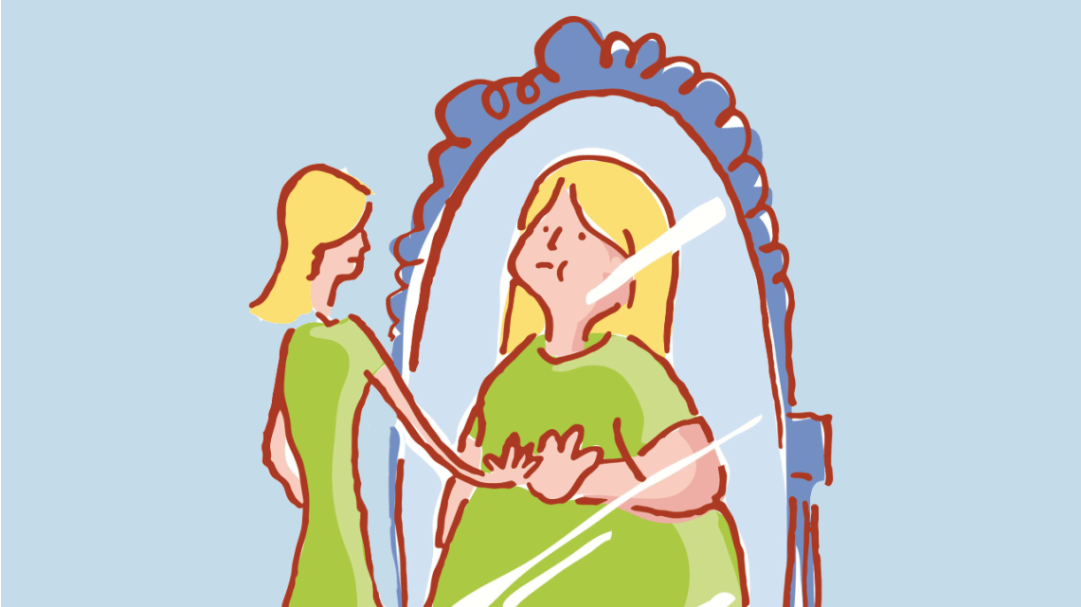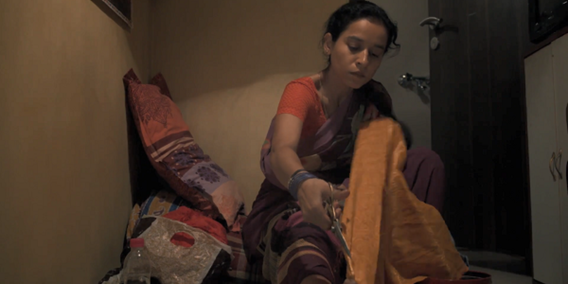In India, gaining weight is seen as a bad sign. I’m sure many of us have heard the sly “oh, you’ve gained weight, who will marry you?” or “log kya kahenge” if we seem to have gained a few kilos. That one sentence might make us feel embarrassed, angry, sad and hurt. It might even hurt our ego enough for us to decide to diet – to show them that we can do this. We can lose weight and we can become thin. But in order to get thin and get those compliments from the outside world, we end up putting our own mental and physical health in jeopardy.
Not to forget that all the current media celebrities are shown to be “fit” with 6 pack abs and biceps. Women are shown to have hourglass shapes with perfect hips and torsos. This tells us that the concept of a “healthy” body is very misunderstood, especially in India. If we look at the current media, it almost feels like being “thin” is the only way to be a part of the mainstream! A list of celebs who lost weight to become actors and their before-after pictures will always show up on social media as inspirational porn.
In order to be accepted and loved, being thin is given priority in society. Almost everyone who is even slightly overweight either chooses to be on a diet or is forced into one by the people around them. The constant snide comments, teasing, bullying and harassing could lead to low self-esteem, anxiety in various social situations, decrease in confidence – and not to forget, eating disorders!
Largely based on Westernised standards of social norms, eating disorders have never been given enough recognition in the Asian society. An overviewof the epidemiology of Eating Disorder in Asia showed that there was a prevalent increase in unhealthy relationships with food in Asia and India specifically.
With the rising number of problems among adolescents and young adults like Polycystic Ovaries Syndrome and the influence of media – eating disorders should not be ignored. While many people might have bad eating attitudes, the concept and understanding of eating disorders is still unknown to most.
So what is an eating disorder? And how do we separate them from disordered eating?
Both, eating disorders and disordered eating revolve around bad relationships with foods. While disordered eating does include extreme dieting, exercising and mainly, anxiety revolving around food – what matters is the intensity and frequency of these behaviours to distinguish between an eating disorder and disordered eating.
Body shaming and food shaming are so generalised in our society, that we end up building negativistic relations with food to avoid being made fun of. The social acceptance and compliments we achieve after starting various diets or for losing weight only make us want to keep dieting. Right?
Disordered eating may be characterised by our self-worth being based highly (or exclusively) on body shape and weight, a disturbance in the way we perceive ourselves (like being thin and still calling ourselves fat), excessive exercise and diet routines and calorie counting, eating only certain foods with inflexible meal times and refusals to eat food outside.
Our preoccupation with eating and dieting might be so much that it adversely affects daily activities and may lead to maladaptive behaviour (like throwing up or using laxatives in order to remain in shape, also known as purging). Some might be in denial of the obsession with food, while others may talk about it more openly. Most of us don’t even realise how bad relationships with food can affect us.
Many eating disorders might be more visible to the eye and are diagnosed as ‘eating disorders’ when the frequency and intensity of these anxious thoughts and actions increase considerably in a span of a few months.
According to the Diagnostic and Statistical Manual – 5, Anorexia Nervosa is characterised with significantly low body weight, with Body mass Index being anywhere between 15 to 17 in adults. This is usually due to the fear of becoming fat and leads to indulging in excessive behaviours that interferes with weight gain. People with anorexia are underweight. A large portion of the individual’s self worth is connected to body weight or shape or lack of acknowledgement of the severity of weight loss.
Bulimia Nervosa is characterised by binge eating and purging. Here, large amounts of food is consumed in a small period of time (with a sense of lack of control) followed by excessive behaviours to prevent weight gain such as vomiting, the use of laxatives, exercise or fasting. Again, a large portion of self worth is connected to body weight or shape. Here, the person might be of a normal body weight.
Binge eating disorder is characterised by eating large amounts of food in small period time with a sense of lack of control (with the absence of purging). Purging Disorder is the repeated purging behaviour to change body weight or shape, such as self-induced vomiting or misuse of laxatives (with the absence of binge eating).
The Academy of Nutrition and Dietetics recently came up with a new name for another type of eating disorder, which has been noticed in the recent years. The unhealthy fixation on eating healthy or “pure” foods, known as “orthorexia”. This disorder is typically characterized by an extreme obsession with avoiding foods perceived to be harmful or unwholesome. Here, instead of the quantity of food, the person might be fixated on the quality. They might fear trying new foods and control eating behaviours excessively to stick to only healthy foods. But in the long run, they end up losing out on health because of these strict measures. These behaviours might start with something simple, like wanting to follow a strict diet but might become extreme when it negatively influences the person’s physical, emotional, and mental wellbeing.
It might be easier to notice and diagnose the symptoms of eating disorders when they are severe. However, most of us in society have been shamed for our bodies at some point in our lives. From being told to cover ourselves better in order to hide our paunch, to being forced to “lose some weight” to look better – all of this affects us more than we know. Of course, various variables play a big role in this context.
(NOTE: These disorders can only be medically diagnosed by mental health professionals.
If you or someone you know, thinks, feels or acts in order to change your diet and weight drastically, it might be a good idea to consult a health professional. Understanding the symptoms, episodes and frequency is important to determine the intensity of the disorder and subsequently, provide needed help. Please do no self-diagnose, contact us and we will try our best to help and guide you!)
Do you desire to change your eating habits?
If you have decided that you should go on that diet. Sounds exciting! Take a pause for a second and ask yourself what led to this decision. Is it because of health reasons, a recent break up or because everyone seems to be trying that or you want to improve your overall health and immunity or you want to look a certain way. By asking yourself the reason and saying it out loud you might be able to put things in perspective whether the new diet sounds like a good idea for you or not.
A healthy reason is one in which the diet brings value, joy and satisfaction to you and not to anyone or thing else. Evaluate this if dieting for fitting into that dress brings value to solely you then go ahead. If you’re going on a diet so that you can fit into that dress to prove someone wrong then ask yourself how is doing this truly bringing value to me or helping me. If you have decided that the diet and the reason behind a diet seems healthy for you. Ask yourself about the diet.
What are my goals in the diet (apart from losing x number of kilos)?
Is it extreme? Is it harming me more than doing good?
Have I made a sustainable diet plan that will help me in the long run?
These questions will allow you to understand your own relationship with food and might also help you choose a diet which is sustainable and helps lift your mood in the long run!
NOTE: These disorders can only be medically diagnosed by mental health professionals.
If you or someone you know, thinks, feels or acts in order to change your diet and weight drastically, it might be a good idea to consult a health professional. Understanding the symptoms, episodes and frequency is important to determine the intensity of the disorder and subsequently, provide needed help.
Please do not self-diagnose, contact us and we will try our best to help and guide you!







